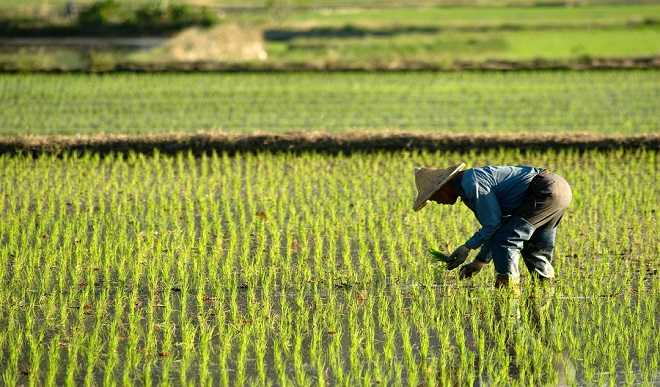Nigeria advised to follow Indian way of mechanized farming
The Federal Governments has been advised to follow the Indian example of mechanized agriculture if the country must be self sufficient in food production. The Acting Executive Secretary, Agricultural Research Council of Nigeria-ARCN, Professor Ambrose Voh, stated this in Kaduna, while declaring open a three-day workshop on Integrated Safe Fertility Management-ISFM for Livelihood Impact organized […]


The Federal Governments has been advised to follow the Indian example of mechanized agriculture if the country must be self sufficient in food production.
The Acting Executive Secretary, Agricultural Research Council of Nigeria-ARCN, Professor Ambrose Voh, stated this in Kaduna, while declaring open a three-day workshop on Integrated Safe Fertility Management-ISFM for Livelihood Impact organized by Nigeria Soil Consortium.
According to Professor Voh, Nigeria could only boast of 30,000 tractors, while India has 400,000, enabling it to produce varieties of food due to mechanized agriculture.
He added that although the present administration was making effort to actualize the national objectives of food and nutritional security, the Nigeria Soil Association was another opportunity that could drive national aspiration in agriculture.
He expressed believe that the Consortium would try to address problem of soil facility in the country which would go a long way in driving the agricultural promotion policies objectives in Nigeria.
Professor Voh however called on the Federal Government to consider basic data on the natural resource base of the country such as land resource use and farming systems which are key towards enhancing environmental monitoring and evaluation which will enable sustainable and efficient use of the resources.
Earlier in his welcome address, the Executive Director of the Institute of Agricultural Research (IAR) Ahmadu Bello University Zaria, Profession Ibrahim Abubakar, expressed dismay over low farm yield, which he blamed on neglect of the soil.
Professor Abubakar said the way forward was development data base that was spatially geo-referenced such as yield gaps variability associated with it, fertilizer in different geo-graphics, facilitating the development of the evidence to support investments required to scale up ISFM technologies.
The workshop is meant to discuss experiences that we have gain over some projects over the years, one of them is integrated soil facility management, you know that crops will give u what they are acquired from the soil end.
